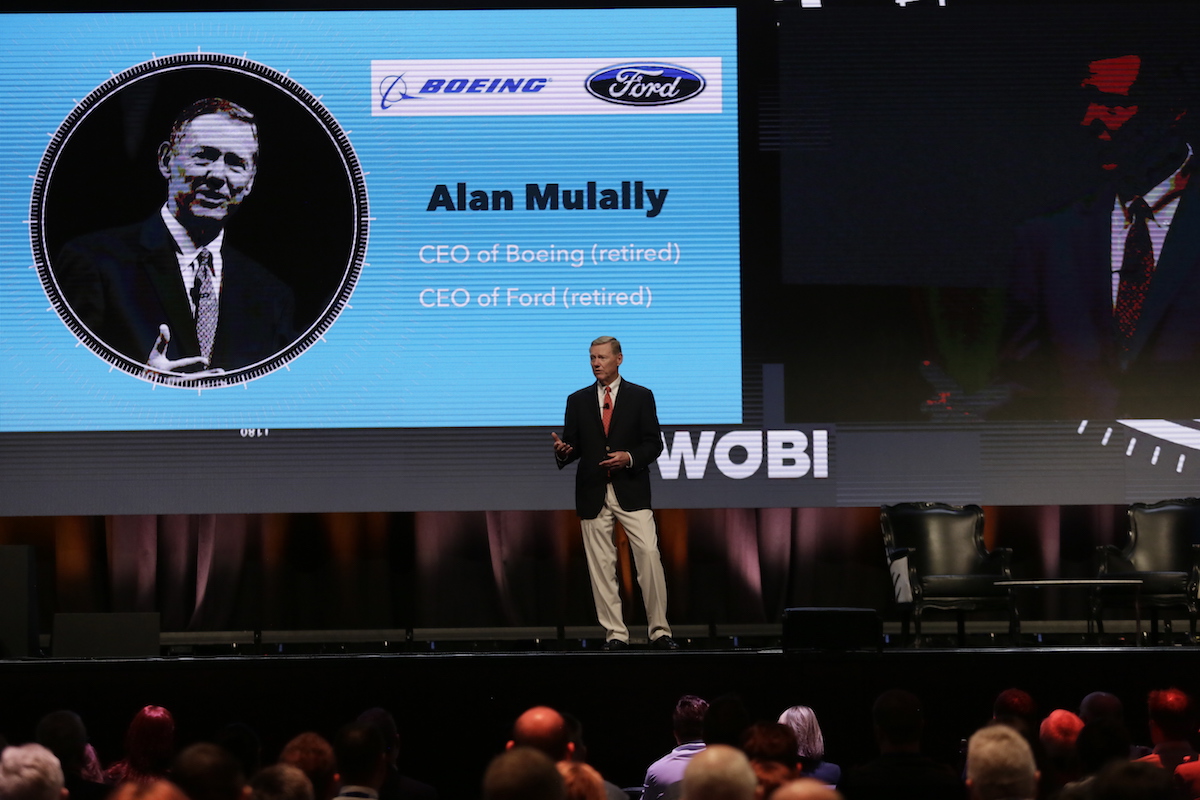Former Ford CEO Allan Mullaly is often praised for his work in taking the automotive giant out of bankruptcy when it faced a US$12.7 billion loss in the early 2000s.
Alan joined Ford in 2006 after serving as Boeing’s chief executive. Speaking at the World Business Forum in Sydney this year, he listed the main principles he used at Ford to keep the team motivated during this challenging period.
These included putting the people first, ensuring everyone felt included in the company’s overall plan, setting out clear performance goals, respecting and helping one another and, at the end of the day, having fun.
In addition to these points, Alan emphasised the two main areas he focused on to turn the business around from its faltering financial position.
Go back to the core of what you’re doing
When Alan first joined Ford, he selected a leadership team from all around the world; choosing people skilled in every position – from engineering and manufacturing right through to communications and legal.
This was significant at the time because these individuals had never been in the same room together before.
“They’d never really spoken to each other because it was not one Ford; it was all separate Fords with completely different products and plans and different businesses,” Alan explained.
What Alan did was bring everyone together towards a common plan and vision. That meant rolling out a strategy that focused solely on the Ford brand, rather than the other brands the company used to hold such as Jaguar, Volvo and Mazda.
“We divested all of the brands,” Alan continued. “We committed to a complete family of Ford vehicles – small, medium, large – from the Fiesta all the way to the F-Series. They all had to be best in class; every new vehicle would be best in class from Ford.
“And we were going to work together as one team worldwide,” he added. “One Ford, one plan, one goal.”
Stay humble – it might lead to the biggest breakthrough
Alan explained that Ford, like many companies, had the philosophy that you should only bring up an issue to your supervisor if you already had an answer to it.
He noted that of the 300 charts the company used to identify issues in its locations all around the world, the marks were always green – meaning that there were no issues to bring up.
And that was a problem.
“None of the staff were ever going to colour anything red because they thought they’d be replaced if one of them had dared to say that issue was true,” Alan said.
During one of the company’s meetings Alan told his team that Ford was going to lose billions of dollars and asked if there was anything that was not going well. No one responded.
It wasn’t until a few weeks later that one staff member had the courage to mention an issue that had stopped vehicle production at one of the company’s facilities. Alan recalled saying to this staff member, “Mark, that’s great visibility. Is there anything we can do to help you out?”
From there, the executives from engineering and manufacturing offered to help Mark and gave their suggestions on how to find a solution to the issue. A few weeks later, the issue turned from red to yellow on the chart and eventually it was completely resolved and vehicle production resumed.
Alan said this humility was the breakthrough the company needed. “It’s really important to stay humble in business,” he concluded.
Alan Mullaly was a keynote speaker at the 2018 World Business Forum in Sydney. Here are our five favourite takeaways from the forum.







